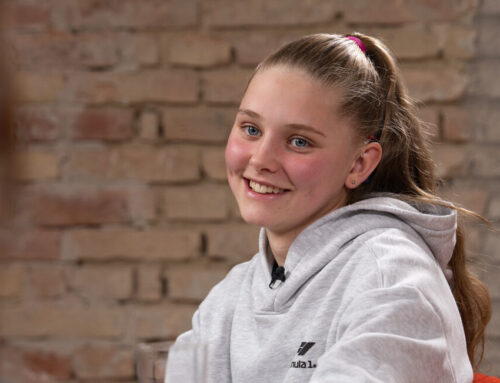Why reading is so important for children with hearing implants
The majority of primary school is dedicated to acquisition of the basic skills of reading, writing and arithmetic. The acquisition of the written language is also important for children with hearing implants but is also a challenge.

The power of reading for children with hearing implants
Since Johannes Gutenberg invented the first printing press with movable type in the mid-15th century and thereby enabled cheap and fast creation of large quantities of written works, the ability to read has become increasingly important to everyday life. Reading and writing are the basis for training and professional success, but also the foundation for many areas of information and general education: think of operating instructions for appliances, accompanying notes with medicines or information from the house owner. Those who cannot read and write good enough to understand the sense of what they have read, or describe precisely their own issues and needs, will remain dependent on the support of others in many areas of everyday life. Written language can also help when acoustic understanding of language is difficult, through written transcriptions of presentations and events or subtitles on TV news and videos.
Parents have a role-model effect in reading, but they also promote a positive attitude towards reading if they participate in their child’s reading. At children, books can broaden horizons and help to develop a larger vocabulary. They offer a stimulus for conversations, including those about behaviour and feelings of others. They are a source of information on subjects that children can be enthusiastic about– like e.g. cars, horses or dinosaurs – and give insights into areas that children would otherwise probably never encounter.
Reading for a child with a hearing implant does not begin with the start of school
Children get their first experience of reading long before they start school through picture books. If you look through a book with your child, give the child enough time to look at the pictures before speaking about them. Children concentrate first on what they see: follow the child’s gaze and find out what he or she is especially interested in– that is what he or she will want to talk about. With children who are at the start of language development, the temptation to ask about individual concepts is great: from „Where is the ball?” through “What is that?” to “What is the dog doing?“ Don’t stop there and ask more open questions to get a conversation about the story started: “Why is the little tiger sad?” or “Why is Pauli hiding now?” as later in school, teachers will often ask similar questions following a story.
It is primarily the task of the teaching staff to teach the alphabet. If your child is interested in the meaning of individual letters or words before school starts, you should not dampen this curiosity: a thirst for knowledge is an important driving force for learning.
First reading age for children with hearing implants
Find out what reading material is promoted in school and support your child with a hearing implant accordingly. Reading together can still promote the pleasure in that. If your child does not like to read, you can take turn to read to each other. When you read, allow your child to look too, if there are now few or no pictures in the book: show with your finger where you are currently reading. Encourage your child to re-tell the content of the book and support your child’s view of the story so that he or she goes back to lessons with greater confidence.
We don’t just read books – there are also games, for example, in which reading of individual words or short instructions is part of the game, or lots of different tokens must be distributed according to a list in the game’s instructions: depending on reading ability, give your child the responsibility of reading out to other players. That takes a little time but saves extra reading practice. If it is necessary for understanding, you can repeat the text correctly or phrase a correction as a question– avoid strict correction as often as possible.
What reading materials children find exciting
Your child with a hearing implant might prefer different reading material than you would have liked at the same age – and that is completely OK! Give your child access to different sorts of text – factual books and und fiction, comics and continuous text, books, magazines and news pages on the internet. If you can find out what sort of reading material your child likes best, you can derive from that what might be the next text: perhaps books that suit your child’s hobbies and interests, like stories about the favourite singer or sport? Go to the bookshop together and let your child chooses something!
If the family sits together at breakfast or some other occasion, share an interesting article or twitter post. Make your child aware of how it is relevant to him, such as: “Look at this, your favourite band is playing a concert here on Saturday…”
It helps some children if they can listen to a book along with reading it– audio books are a wonderful opportunity for the listening training of your child with a hearing implant. Always ensure you use the unabridged recordings of audio books.






